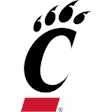When I played freshman basketball at a Catholic high school in Wisconsin back in the 1980s, one of my teammates earned the nickname "Plop" because of the sound his flat feet made when we ran laps around the gym. I remember running laps around that gym with "Plop" and the rest of my teammates a lot, often as punishment for forgotten indiscretions; in fact, the running is what sticks out most about that season - which was my last playing organized hoops.
The reason I'm even thinking about stuff like this is because of a Des Moines Public Schools investigation into the behavior of Tom Mihalovich, a now-suspended football coach at Lincoln High School in Des Moines, Iowa. Mihalovich may have violated school bullying and corporal punishment policies by requiring a sophomore player to run sprints and laps after the boy made derogatory comments about Lincoln's varsity team. The district's investigation revealed that the player ran at least 20 hill sprints, completed 20 up-down drills, ran two laps around the practice field and did additional hill sprints in approximately 30 minutes. According to Lincoln's athletic trainer, the player was not given a water break.
Corporal punishment, as defined by Iowa state law, means "the intentional physical punishment of a student" and "includes the use of unreasonable or unnecessary physical force, or physical contact made with the intent to cause harm or pain." The law does, however, allow for a specific exemption for "reasonable requests or requirements of a student engaged in activities associated with physical education class or extracurricular athletics."
Running or extra conditioning could be considered corporal punishment, according to Thomas Mayes, an attorney for the Iowa Department of Education. "But there is no bright line that can be drawn between what is reasonable and unreasonable," he told Des Moines Register reporter Daniel P. Finney.
"Good common sense would indicate we're past using conditioning and running in a punitive manner," Mike Dick, executive director of the Iowa Girls High School Athletic Union, told Finney, who explained the history of the practice in his Register article: "Running as punishment may be a casualty of evolving standards in education and athletics. In 1954, Texas A&M University football coach Bear Bryant subjected his squad to a grueling 10-day camp in which players who sought water were considered soft. Today, such a practice is considered dangerous and criminal, in part because of better understanding of how the human body works and also because of several deaths related to dehydration in football camps."
Perhaps the most famous incident involving dehydration during football practice involved Max Gilpin, a 15-year-old sophomore from Pleasure Ridge Park High School in Louisville, Ky., who died from heat stroke while running sprints commonly known as "gassers" with his teammates in 94-degree heat in August 2008. Medical personnel testified at the trial of his first-year coach, David Jason Stinson, that Gilpin's body temperature was 107 degrees when he arrived at the hospital. Although Stinson was found not guilty on charges of reckless homicide and wanton endangerment, and later settled a civil suit out of court, he was thought to be the first high school coach indicted for the practice-related death of a player, and prosecutors referred to Stinson's "barbaric conditioning" regimen in their case against him.
Even the National Association of Sport and Physical Education has come out against running as punishment in a 2009 position statement: "While some people believe that physical activity used as punishment and/or a behavior management tool is effective, experts perceive this practice as a 'quick fix' that actually might discourage the behavior it is intended to elicit. Using negative consequences to alter behavior suppresses the undesirable behavior only while the threat of punishment is present; it doesn't teach self-discipline or address the actual behavior problem. Therefore, student behavior patterns are not changed."
Amen to that. Running with "Plop" all those years ago did nothing to make either of us - or the rest of the team, if memory serves - better basketball players. In fact, it probably built up resentment, whether we knew it at the time or not. I don't recall ever getting physically sick after running all those laps, nor am I implying any wrongdoing on the part of the school or my coach. I'm simply agreeing with a guy like Ric Powell, activities director at Des Moines East High School, who told The Register that he encourages his coaches to put specific disciplinary expectations in student-athlete handbooks. "I tell them to put it in writing," he said. "If you're late to practice, then you run this much, and so on. That way everybody knows what the expectations are. I review these handbooks every year before they're distributed and sometimes you have to say, 'OK, this is too harsh. We need to back off here.' "




































